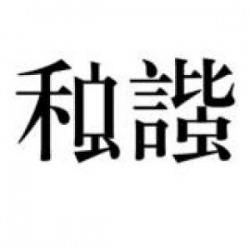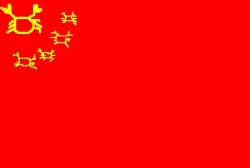“River crab”的版本间的差异
来自China Digital Space
小 |
|||
| 第1行: | 第1行: | ||
河蟹 (héxiè): river crab | 河蟹 (héxiè): river crab | ||
| − | [[File:river crab1.jpg| | + | [[File:river crab1.jpg|250px|thumb|right|''Picture of a river crab wearing three watches. (“Wear three watches” (带三个表 dài sān ge biǎo) sounds similar to the [http://en.wikipedia.org/wiki/Three_Represents Three Represents] (三个代表 sān ge dàibiǎo), Jiang Zemin’s signature ideological creation.'']] |
| − | The Chinese government often uses its goal of constructing a “harmonious society” (和谐社会 héxié shèhuì) as a justification for censorship. Chinese netizens began to use “harmony” as a euphemism for censorship. “River crab” (héxiè) sounds nearly the same in Chinese as “harmonious” ( | + | The Chinese government often uses its goal of constructing a “harmonious society” (和谐社会 héxié shèhuì) as a justification for censorship. Chinese netizens began to use “harmony” as a euphemism for censorship. “River crab” (河蟹 héxiè) sounds nearly the same in Chinese as “harmonious” (和谐héxié). |
“River crab” can also be used as a verb. Instead of saying something has been censored, one might say “it has been harmonized” (被和谐了 bèi héxié le) or “it has been river-crabbed” (被河蟹了 bèi héxiè le). | “River crab” can also be used as a verb. Instead of saying something has been censored, one might say “it has been harmonized” (被和谐了 bèi héxié le) or “it has been river-crabbed” (被河蟹了 bèi héxiè le). | ||
| 第9行: | 第9行: | ||
A “crab” is also a bully. | A “crab” is also a bully. | ||
| − | In the context of Chinese Internet mythology, the river crab (censorship) threatens the habitat of the [[grass-mud horse]] (symbol of online deviance). | + | In the context of Chinese Internet mythology, the river crab (censorship) threatens the habitat of the [[grass-mud horse]] (symbol of online deviance). A popular [http://www.youtube.com/watch?v=3D2eh4xehc4 cartoon] illustrates this struggle. |
| − | + | [[File:river crab2.jpg|250px|thumb|right|''The word “harmonious” written in Chinese—various components have been modified to resemble the radical used in the word “crab.”'']] | |
| − | |||
| − | ''' | ||
| − | |||
| − | [[File:rivercrabflag.jpg| | + | [[File:rivercrabflag.jpg|250px|thumb|right|''National Flag of the Republic of Rivercrabs.'']] |
| − | |||
| + | [[File:china flag.jpg|250px|thumb|right|''Flag of the People's Republic of China.'']] | ||
| − | + | <feed url="feed://chinadigitaltimes.net/china/harmony/feed/" entries="5"> | |
| + | == [{PERMALINK} {TITLE}] == | ||
| + | '''{DATE}, by {AUTHOR}''' | ||
| + | </feed> | ||
[[Category: Grass-Mud Horse Lexicon]] | [[Category: Grass-Mud Horse Lexicon]] | ||
2013年1月18日 (五) 16:11的版本
河蟹 (héxiè): river crab

The Chinese government often uses its goal of constructing a “harmonious society” (和谐社会 héxié shèhuì) as a justification for censorship. Chinese netizens began to use “harmony” as a euphemism for censorship. “River crab” (河蟹 héxiè) sounds nearly the same in Chinese as “harmonious” (和谐héxié).
“River crab” can also be used as a verb. Instead of saying something has been censored, one might say “it has been harmonized” (被和谐了 bèi héxié le) or “it has been river-crabbed” (被河蟹了 bèi héxiè le).
A “crab” is also a bully.
In the context of Chinese Internet mythology, the river crab (censorship) threatens the habitat of the grass-mud horse (symbol of online deviance). A popular cartoon illustrates this struggle.
<feed url="feed://chinadigitaltimes.net/china/harmony/feed/" entries="5">
[{PERMALINK} {TITLE}]
{DATE}, by {AUTHOR} </feed>







